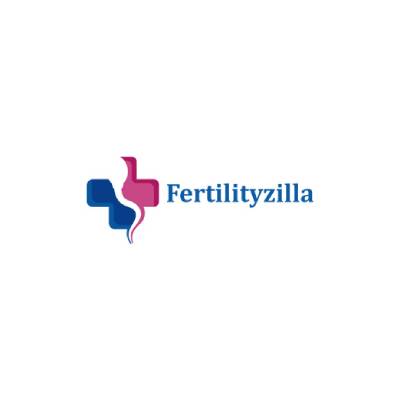How good are your ovaries for IVF?
IVF
admin
Jul 23, 2021
Knowing how good are your ovaries for IVF requires a great deal of effort and the right consultation. Many couples who fail to give birth to their babies naturally or with medications, opt for IVF i.e. In Vitro Fertilization technique. This technique helps implants an embryo in the uterus of a woman. According to the statistics and feedback from couples, IVF is an effective way to conceive easily. However, it works well only when a woman has good quality eggs for IVF in their ovaries. Hence, before starting the procedure, many doctors recommend patients take certain steps to improve the egg quality.

What is IVF Pregnancy
IVF is the short form of in vitro fertilization, and it is a type of ART, i.e. Assisted Reproductive Technology. The procedure works by combining surgical procedures and medicines to fertilize eggs by using sperms. Simultaneously, the procedure implants the fertilized egg in the uterus.
Stages of IVF Pregnancy
During an IVF procedure, your doctor will remove the eggs from your ovary and fertilize them in a lab with sperm. The sperm, in this case, is obtained from your partner or any other donor. Later, your IVF specialist implants two embryos or fertilized eggs in your womb or uterus. The complete IVF procedure consists of the following stages-
- Doctors switch off your natural menstrual cycle with a nasal spray or daily injections to start the procedure.
- You have to take fertility hormone injections for stimulating her ovaries. This will produce multiple numbers of eggs.
- The IVF specialist combines ultrasound techniques, fine needles, and light sedation to collect the matured eggs.
- Fertilization of the eggs occurs in a lab setting with the collected sperm. Now, you have to wait for a few days to let the embryos grow or fertilize eggs.
- After this comes the embryo transfer process, where the IVF doctor transfers healthy embryos into your uterus. Here, your doctor inserts a thin tube in your cervix and vagina.
- Now, the success in terms of your pregnancy depends on the successful implantation of the embryos. You have to wait for approximately two weeks to undergo a pregnancy test.
- Doctors freeze the healthy leftover embryos to store them for later use in the case of requirement.
Relation between Ovary Pain and IVF
Ovary pain during IVF stimulation takes place because of OHSS as a side effect of IVF treatment. OHSS is the abbreviated form of Ovarian Hyper Stimulation Syndrome and it is an exaggerated hormone response. The syndrome and ovary pain takes place in women, who intake hormone injections to stimulate eggs development in their ovaries. Besides ovary pain, a few women also experience other problems. These include vomiting and nausea, abdominal pain, swelling in ovaries and abdomen, bloating and many more. However, the positive thing is that ovary pain and other problems related to OHSS cure with medications and self-care. A few patients ask how big do ovaries get during IVF? The answer is ovaries’ size increase to approximately 5 inches or 10 centimeters. However, the normal size of the ovary’s diameter is about 2cm to 3cm or 1inch.
IVF Outlook or Success Rate
A few patients not only ask What is IVF Pregnancy but also ask IVF outlook. The outlook or success rate of IVF treatment procedures varies a lot. The live birth rate among women less than 35 years with IVF is about 50 percent. However, the rate declines to only 20 percent for women exceeding 40 years.
IVF Success Depends on Ovarian Reserve and Egg Quality
Reproductive age has a significant impact on both embryo and egg quality. Based on the IVF outlook, the IVF success rate reduces due to a decrease in the number of eggs present in the ovaries. As the age of a woman exceeds 30 years, her fertility potential reduces significantly. There are many tests available to identify patients with suboptimal stimulation response in the case of IVF. When the decrease in ovarian reverse occurs because of abnormal value in any recommended tests, doctors recommend IVF with ovarian stimulation.
The ovarian stimulation method has a significant impact on the embryo or egg quality. The potential of an egg to mature, fertilize and progress to form good quality embryos depend on genetic factors. However, in some cases, the potential of an egg depends on intra-ovarian hormone changes before an ovulation cycle.
You must know that FSH, LH, and pituitary gonadotrophins have prime roles in follicle development. They also have major action sites in your ovary. FSH directs towards the proliferation of granulosa cells and estrogen production. In contrast, LH acts mainly on the stroma of your ovary for producing androgens. Your body needs testosterone in a small among to achieve optimal production of estrogen. Hence, over-production causes a negative influence on your follicle development, activities of granulose cells, and embryo quality. Besides, ovarian androgens in high amounts compromise the endometrial growth induced by estrogen.
What is Egg Quality in IVF?
Egg quality indicates the probability of any embryo implantation. It partially depends on the total number of eggs in the ovarian reserve of a woman. Egg quality depends largely on the age of a woman. Women with high-quality eggs can easily get pregnant with IVF procedures.
Importance of Egg Quality in IVF
Eggs and embryos stay connected directly with one another. This means high-quality eggs will produce high-quality embryos. High-quality eggs allow the proper growth of embryos. In this way, eggs allow embryos to stick or implant once they enter the uterus. The embryo must have enough strength to survive easily during the early development stages and eventually lead to pregnancy.
Signs of Poor Egg Quality IVF
The difficulty to get pregnant without any valid reason is one of the common signs of poor egg quality in IVF. This is particularly true for women without any anatomical issues. Even though the poor quality egg is not an obvious symptom of the issue, it leads to a decline in eggs competency with time.
Various Ways to Test the Quality of Eggs for IVF
There is no definite test to determine the quality of eggs for IVF procedure. However, patients want to conduct egg quality test at home may use home fertility test kits to assess how good are your ovaries for IVF. These kits determine the egg and embryo qualities based on various hormone levels present in the collected blood sample. These include the following-
AMH Blood Test
What is good amh level for IVF? The success of your IVF treatment depends solely on the answer to this question. For this, you must know what an AMH blood test is. AMH is the short form of Anti Mullerian Hormone. The hormone is produced in a woman’s ovaries by a few small early-stage follicles while they grow to a stage to produce eggs for ovulation.
AMH levels give an estimate of enough quantity and quality of growing follicles. AMH level is a sensitive marker for any ovarian reserve, and it seldom fluctuates between or during menstrual cycles. However, the minimum AMH level requirement for IVF depends on the age of a woman. Accordingly-
- A 45 years old woman must have a minimum of 0.5 Nanogram AMH in one millilitre.
- Minimum AMH levels for 40 years, 35 years, and 30 years old women will be 1ng/ml, 1.5 ng/ml, and 2.5 ng/ml, respectively.
- Lastly, the minimum AMH level for a woman of only 25 years must be 3 ng/ml.
FSH Level Test
To assess how good are your ovaries for IVF, an FSH test is also done. FSH is the short form of Follicle Stimulating Hormone. It is also an important hormone in the menstrual cycle of a woman. FSH stimulates follicles development to produce and release eggs at the time of ovulation. The production takes place in a woman’s body until she ovulates. In contrast, FSH levels go on consistently if the woman does not ovulate.
FSH levels indicate the efforts of your body to exert to assist you in ovulation. High levels indicate diminishing ovarian reserve with a reduction in egg numbers and low egg quality. In most cases, doctors recommend you conduct an FSH level test on day 3 of the IVF treatment. If your level is less than 15mIU in one milliliter, you will have a better chance to achieve pregnancy.
Estradiol Blood Test
Matured follicles secrete a type of estrogen called estradiol, which is a prime female reproductive hormone. Suppose the body of a woman releases estradiol at a high level on her third day of MC. In that case, it indicates that the body has to work very hard for producing eggs, and the ovarian reserve becomes low. According to the experts analyzing estrogen level and egg quality in IVF, estradiol obtained from a single mature follicle and retrieved oocyte has a strong influence on IVF. The pregnancy rate becomes better when estradiol in one follicle ranges between 200 and 300 pg/ml. An increase in serum estradiol has a positive correlation with improved embryo quality and oocytes.
What is involved in Home Fertility Test Kits?
Home fertility test kits are available to conduct tests on hormone levels, i.e. AMH and FSH. Accordingly, you have to pin your fingertip to collect a small amount as a blood sample. The kits determine the result based on cut-off levels. This means you get two results as reassuring or normal level and non-reassuring or abnormal level.
Does Egg Quality Vary Month on Month
IVF specialists often determine the egg quality based on the age of a woman. However, another question that comes in our mind is does egg quality vary month on month? The answer is yes, it varies among months. The reason is a woman has a unique eggs batch during the beginning of her menstrual cycle. Doctors may use such eggs potentially for IVF procedures. Besides, your egg quality depends solely on your IVF doctor’s decisions. These include the following-
- Selection of a particular protocol of ovarian stimulation
- Selection of various hormone medicines to obtain the right follicle growth
- Ovulation triggering period
Role of Ovarian Stimulation to Improve Egg Quality and Condition of Ovaries
Before you should understand its significance, you have to know ovarian stimulation meaning and the way to perform it. Ovarian stimulation intends to increase the numbers of released eggs and their quality by inducing ovulation in ART procedures. Doctors perform the procedure by using medications or injections.
Significance of Ovarian Stimulation
Ovarian stimulation increases the exact number of eggs and their quality released during the ovulation phase. If you choose to undergo the procedure before your artificial insemination, it will increase the chance of an inseminated sperm approaching the fallopian tube for fertilizing the egg. Many patients choose this procedure before IVF to retrieve multiple numbers of eggs at the time of egg retrieval. Moreover, the procedure mixes a large number of eggs with semen in a lab setting. This will boost the chance of forming a viable embryo to transfer to the woman’s body.
Other Ways to Improve Egg Quality
Besides ovarian stimulation, you may improve the egg quality with the following tips-
- The flow of oxygen-rich blood to the ovaries is essential for healthy eggs. You may improve the blood flow by staying hydrated for the day by having 8 glasses of water in one day.
- You should take regular exercise and undergo massage therapy.
- We suggest you maintain your healthy body weight before planning your pregnancy.
- You should always consume nutritious foods, like vegetables and fruits to make IVF treatment successful.
- Lastly, you must stress to prevent the production of cortisol and prolactin hormones.
How long does it take to improve egg quality?
Every one of us wants fast results today and it is applicable in the case of IVF treatment as well. Accordingly, many women ask how long does it take to improve egg quality. None of the treatments or tips gives you faster results related to improvement in the egg quality. Instead, you have to wait for a while, as the outcome requires some time. In most cases, the window associated with egg quality improvement ranges between two and four months before ovulation. During this period, follicle cells develop to divide to create egg cells for ovulation.
Conclusion
Based on various factors related to IVF pregnancy and egg quality, we should say that IVF success depends primarily on egg quality. Now the answer to how good are your ovaries for IVF, is that Based on your age, medical history, and the results of your ovarian reserve testing, the fertility specialists can assess. However, egg quality degrades with age of a woman. For this, good IVF clinic and doctors conduct certain tests to determine the egg quality in women. Alternatively, a few doctors often recommend home-based hormone tests to check the egg quality. You may improve your condition to some extent with proper medications, ovarian stimulation and other lifestyle changes. With proper care, IVF doctors help and healthy lifestyle, you will expect success in IVF cycles.
FAQs
Can IVF damage your ovaries?
Yes, IVF, in some cases, causes damage to the ovaries. The treatment involves the use of hormonal drugs to produce additional eggs to fertilize them successfully. However, hormonal drugs sometimes cause ovary overstimulation and ovary damages.
How do I know if my egg quality is good?
There is no particular test to know the egg quality. The single way to identify whether an egg is normal in terms of the chromosome is to identify its ability to fertilize. If fertilization takes place successfully, you have to conduct an embryo genetic test.
Can egg quality be improved for IVF?
Until now, there is no evidence or research study, which justifies that any treatment has improved egg quality and fertility. However, you may improve your condition with certain lifestyle changes and ovary stimulation methods before IVF.
What is poor egg quality in IVF?
A woman has a high quality of eggs between her 25 years and 35 years, which indicate the most fertile years of her life. However, with age, egg quality decreases, which causes fertilization difficulty. Eggs, which fail to fertilize to implant are poor quality eggs.
References
https://www.plannedparenthood.org/learn
https://www.pregnancybirthbaby.org.au
https://www.healthline.com/health
https://www.bostonivf.com/getting-started/egg-embryo-quality-101/
https://www.healthline.com/health/fertility/amh#amh-and-fsh
https://www.verywellfamily.com/day-3-fsh-levels-test-1960172
https://www.ncbi.nlm.nih.gov/pmc/articles/PMC3984655/
Speak to our infertility specialist +91 8969340069
You might also like

IVF Process Step-by-Step
Sep 06, 2021

IVF Cost in Delhi
Sep 03, 2021

Recurrent IVF Failure
Aug 30, 2021
